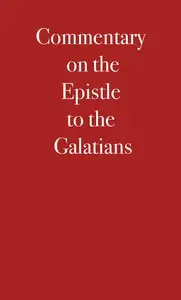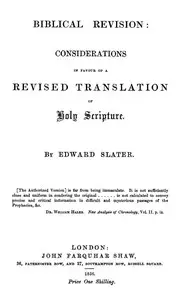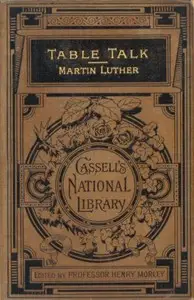"An Open Letter on Translating" by Martin Luther is a scholarly work from the Reformation era that justifies Luther's biblical translations into German, particularly against objections from Catholic leaders. The book passionately explains the difficulties and importance of translating sacred texts, especially when discussing complicated theological concepts like salvation through faith. Luther answers a friend's questions about why he added the word "sola," meaning "alone," in his translation of Romans 3:28, claiming that faith alone is key to Christian salvation and needed to accurately communicate St. Paul's message. He stresses that it's vital to use language that ordinary German speakers can understand rather than just directly translating from Greek or Latin, which could be confusing. Luther's strong support for a more thoughtful and genuine way to translate shows his idea that language should help believers understand and connect with their Christian faith. He consistently defends his expertise as a translator against attacks from those who disagree with him, stating that truly understanding scripture is essential for the church's spiritual health.

An Open Letter on Translating
By Martin Luther
In a time of religious upheaval, a translator defends his controversial choices, arguing that making sacred texts understandable to the common person is worth challenging established authority.
Genres
Released
1995-06-01
Formats
epub3 (images)
epub
mobi (images)
mobi
epub (images)
txt
Free Download
Summary
About the AuthorMartin Luther was a German priest, theologian, author, hymnwriter, professor, and Augustinian friar. Luther was the seminal figure of the Protestant Reformation, and his theological beliefs form the basis of Lutheranism. He is widely regarded as one of the most influential figures in Western and Christian history.
Martin Luther was a German priest, theologian, author, hymnwriter, professor, and Augustinian friar. Luther was the seminal figure of the Protestant Reformation, and his theological beliefs form the basis of Lutheranism. He is widely regarded as one of the most influential figures in Western and Christian history.
Total Reviews
10.0k
Total reviews from Goodreads may change
















![Social Rights And Duties: Addresses to Ethical Societies. Vol 2 [of 2] by Leslie Stephen](https://cdn.a2-host.cloud/zJG1ExfUm4zfEyOBzVZnsadhHS69IK4lr7k3_axh6Ho/rs:fill:215:325:0/g:ce/aHR0cHM6Ly9zcC1hc3NldHMuczMudXMtd2VzdC0wMDQuYmFja2JsYXplYjIuY29tL2Jvb2svMzY5NTcvU29jaWFsX1JpZ2h0c19BbmRfRHV0aWVzX0FkZHJlc3Nlc190b19FdGhpY2FsX1NvY2lldGllc19Wb2xfMl9vZl8yX2NvdmVyLmpwZw.webp)


